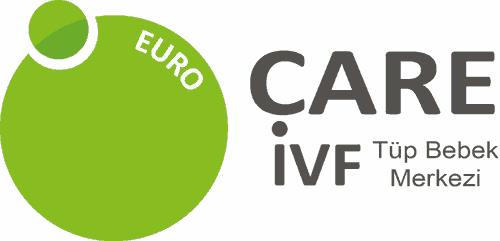
Got pregnant with more than one baby? Your pregnancy will most likely be different from a singleton pregnancy. However, expecting twins does not necessarily mean that you’ll experience more complications. With the right combination of positive lifestyle changes, guidance and support, you can set your path up for a successful pregnancy and delivery.
This guide will help you learn everything you should know about twin pregnancy and how to take care of yourself during this time.
Twin pregnancy is unique
Baby bump
One of the obvious differences in being pregnant with twins is that you will get a lot bigger than moms who’re carrying one baby. Your uterus will expand multiple times its pre-pregnancy size to allow extra blood to nourish and extra space to accommodate your growing babies. Because of this, you’ll be able to find out if you’re having twins through your dating ultrasound scan, which happens at around 7 to 8 weeks.
While a mother’s abdomen increases exponentially, her weight will also increase because of the weight of the twins and one part because of her breasts, increased blood volume and general increase in body fat.
Pregnancy duration
Although the average length of gestation is 38-42 weeks, twin pregnancies usually last 32 to 36 weeks. The limited space for the babies to grow is often the cause for a preterm labour. This is one of the reasons why twins are frequently born prematurely.
Symptoms
When carrying twins, symptoms tend to be the same as those of singleton pregnancies — but often multiplied. This is one of the reasons why mothers expecting twins or triplets usually go on sick leave earlier than those who are pregnant with one baby.
First trimester
This is the first three months or first 13 weeks of pregnancy. Due to elevated levels of the pregnancy hormone hCG, you may experience more nausea and vomiting — and even extreme morning sickness — than women carrying one baby. Other pregnancy symptoms may be more intense and/or occur much earlier on.
According to our fertility specialists, common symptoms of twins you can expect in the first trimester include:
- Fast-growing uterus
- Rapid weight gain
- Tender breasts
- Frequent urination
- Severe fatigue
- Excessive hunger, appetite fluctuations and increased sensitivity to particular smells
Second trimester
The second trimester lasts from week 14 to week 27. This is often the time when morning sickness and tiredness from the first trimester will fade. Although you’ll put on weight more rapidly than single-pregnancy moms, you’ll still be able to move around. You may also experience some of the discomforts that are usually common in the third trimester. If you experience mild aches, our Eurocare IVF specialists advise you to relieve the ache/discomfort through prenatal yoga, walking, stretching, warm baths and massages from your partner.
Third trimester
Now that you’re in your third trimester and pregnant with twins, you’ll likely experience more fatigue, exhaustion and a lack of general energy. As claimed by our medical team, this is normal so you should take the opportunity to rest whenever possible.
Common complications of twin pregnancy
Though the risk of pregnancy complications rises with the number of babies a woman carries, it doesn’t mean that expectant mothers will experience the common symptoms of twin pregnancy, including:
- Miscarriage (common in the first trimester)
- Pre-eclampsia, gestational diabetes and pregnancy-induced hypertension
- Caesarean section delivery
- Premature birth and health problems
Prenatal care
Since preterm birth and growth disturbances are the major complications in multiple pregnancies, frequent obstetric visits and close monitoring of the pregnancy are required. This means that you may need more prenatal tests (like ultrasounds) to check on your growing twin babies during pregnancy.
Our EuroCARE fertility specialists recommend that you have cervical examinations every week or two early in pregnancy to determine if the cervix is thinning or opening prematurely. If an exam or ultrasound shows that the cervix is beginning to become larger prematurely, a cerclage (suture placed in the cervix) may prevent or delay preterm birth. Some medications have been shown to stop premature delivery more effectively than preventive cerclages.
Foetal growth will be assessed every 3 to 4 weeks during the second half of pregnancy using ultrasound. If you’ve had pregnancy complications in the past — or if you have health conditions that might put you at risk for pregnancy complications — your doctor may refer you to a maternal-foetal medicine (MFM) specialist. This is a doctor who specialises in managing high-risk pregnancies.
Prenatal testing
Ultrasound examination is commonly performed in the second trimester to identify some birth defects. A non-invasive prenatal test may be needed near the end of the first trimester to check for Down syndrome and other genetic disorders. The test involves screening for certain genetic conditions from as early as week 10 of your pregnancy. It is done by getting a blood sample from the mother.
Though many genetic and chromosomal conditions can’t be prevented, they can be detected before a child is even born. Two pre-conception genetic tests PGD and PGS done as part of IVF treatment in Cyprus. With these tests you can have a healthy pregnancy and a healthy baby even before getting pregnant, thus avoiding genetic/chromosomal conditions in your baby altogether.
Additional tips to ensure a healthy twin pregnancy
In order to achieve the best outcome with a twin pregnancy, the expectant mother must make considerable lifestyle changes, especially after about 20 weeks into the pregnancy.
Nutritional considerations
There’s no special food during twin pregnancy but you do need more of certain nutrients, like folic acid, protein, iron and calcium. You can get the right amount of these nutrients by eating healthy foods and taking prenatal vitamins every day. Before considering taking any supplements, please consult with your doctor.
Eat frequent and healthy snacks to reach your caloric goals each day and ease morning (or all-day) sickness. Later in pregnancy, you may lose your appetite, but even then, consider eating healthy options like low-fat yogurt, fruit, smoothies, crackers or protein shakes to keep you full for some time.
Drink water throughout the day to keep you well hydrated and to improve your babies’ extra blood flow and removal of wastes.
Activity precautions
Being pregnant with twins is very tiring. Getting into the habit of a rest period every day (even for a few minutes) improves uterine blood flow and may be helpful for fetal growth. This is also the time when you’ll most likely feel fetal kicks. Intercourse generally is discouraged when bed rest is recommended.
Weight gain
There is an increased need for maternal nutrition in twin pregnancies. In a twin pregnancy, the caloric recommendation goes to 600 calories extra per day (300 for each baby). With twins, weight gain of approximately 15-20 kg is recommended for normal-weight women.
Although the expectant mother needs to gain more weight, she should know that the pattern of weight gain is important, too. Weight gain of ½ kg per week in the first 20 weeks is considered normal.
Delivering twins
Delivery of multiples requires planning by the entire medical team and availability of full intensive-care support following birth. It’s also important for moms of twins to have a carefully considered birth plan.
Vaginal delivery of twins may be recommended in some circumstances. Many twins can be delivered vaginally if the lowest infant is in the head-first position. Appropriate anaesthesia is essential, whether delivery is performed vaginally or by cesarean section. In cases where the first baby is breech (toe-headed), regardless of the position of number two, a C-section delivery is used.
Immediately after the babies are born, your doctor will assess whether they need to go straight to the NICU (neonatal intensive care unit). In general, multiples are more likely to end up in the NICU than singletons, as they’re often born earlier and weigh less. Still, if your little ones turn out to be full-termers with no health issues, they’ll be taken to the nursery and should only have to stay there for a day or two.
Psychosocial effects of twins on a family
Although the majority of women with a twin pregnancy do very well, their families may experience significant stress. If prolonged hospitalisation is needed, arrangements must be made for work, home and family care.
Even when medical problems are overcome and the infants are born healthy, the effect of twin births on family life is substantial. Financial strains are common, due to the additional costs of feeding, clothing, housing and caring for two children.
Postpartum depression is also common after delivery of twin pregnancies in both the mother and the father. But do not despair: psychological counselling and support groups can provide plenty of advice and support.
Double the joy with EuroCARE IVF
The advice to keep yourself and your pregnancy healthy is similar — no matter if you’re expecting twins, triplets or just one baby. Eat well, take gentle exercise, drink lots of water and, if you feel stressed, consider counselling and get support from friends and family. It’s also important to attend all your antenatal appointments so your doctor can keep a close eye on you and your babies. Listen to your body and report any unusual pregnancy symptoms to your obstetrician.
Twin pregnancies are a real miracle, delivering to parents a double bundle of joy, excitement and wonder. If you wish to have twins, contact our medical team to find out about the options in North Cyprus to increase your chances of a twin pregnancy!
